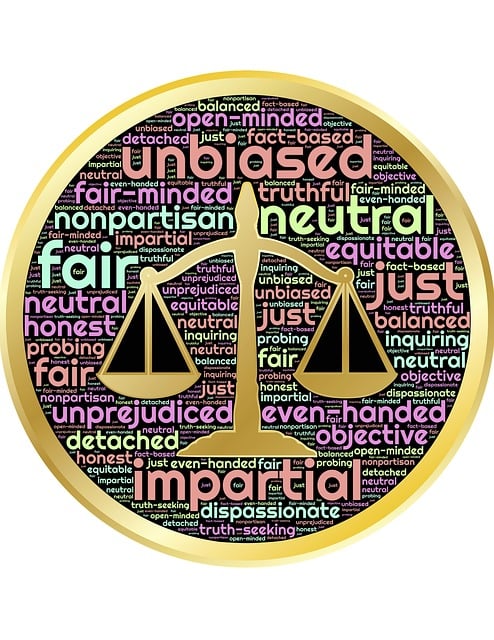Estate administration is a complex process that often requires the specialized knowledge of experienced attorneys, particularly when navigating the legal system and resolving disputes in court. These professionals ensure that executors and beneficiaries comply with state laws and fulfill the decedent's wishes as outlined in their will. They are adept at interpreting complex estate provisions, mediating conflicts among heirs, and managing the distribution of assets. In contentious situations, these attorneys represent estates in litigation, addressing issues such as contested wills, creditor claims, and executive actions. Their expertise is crucial for constructing arguments, presenting evidence, and adhering to courtroom procedures to achieve fair outcomes. They also excel in alternative dispute resolution methods like mediation and negotiation. The guidance of a seasoned estate administration attorney is key to upholding the testator's intentions, safeguarding the interests of all parties, and ensuring that the estate is settled effectively and efficiently.
When the legal complexities of estate administration intersect with the rigors of a courtroom, the guidance of seasoned attorneys becomes indispensable. This article delves into the pivotal role of experienced estate administration lawyers in contentious settings, exploring their responsibilities and functions when disputes arise. We will examine how their expertise maneuvers through the intricacies of probate court to facilitate efficient estate settlement. With enlightening case studies that exemplify success, this narrative underscores the importance of legal acumen in the courtroom arena of estate administration.
- Understanding the Role of Experienced Estate Administration Attorneys in Courtroom Settings
- Key Responsibilities and Functions of Estate Administration Lawyers When Litigation Arises
- Navigating Probate Court: How Expert Legal Guidance Can Streamline Estate Settlement
- Case Studies: Successful Outcomes Managed by Seasoned Estate Administration Attorneys in the Courtroom
Understanding the Role of Experienced Estate Administration Attorneys in Courtroom Settings

Navigating the complexities of estate administration often leads to courtroom settings, where the expertise of experienced estate administration attorneys becomes indispensable. In such environments, these legal professionals guide executors and beneficiaries through probate proceedings, ensuring adherence to state laws and the decedent’s will. Their role is pivotal in interpreting ambiguous clauses, settling disputes among heirs, and managing the distribution of assets in a manner that upholds the testator’s intentions while safeguarding the rights of all parties involved.
Moreover, these attorneys are adept at representing estates in litigation, whether it arises from contested wills, claims against the estate, or challenges to the executor’s actions. Their legal acumen is critical in preparing and presenting evidence, cross-examining witnesses, and crafting arguments that resonate with judges and juries. The presence of an experienced estate administration attorney in a courtroom can be the difference between a protracted legal battle and a timely resolution, ensuring that the decedent’s legacy is honored and their estate settled efficiently.
Key Responsibilities and Functions of Estate Administration Lawyers When Litigation Arises

When disputes over estate administration arise, experienced estate administration attorneys play a pivotal role in navigating the complexities of litigation within courtrooms. Their expertise is crucial in resolving contests over will validity, challenges to executor actions, and claims against estates. These legal professionals must possess a deep understanding of state-specific laws governing probate processes and have the skill to argue their client’s position effectively. They act as advocates in courtroom settings, representing beneficiaries or fiduciaries involved in litigation, ensuring that the estate’s administration aligns with the decedent’s wishes and legal requirements.
In the event of litigation, estate administration lawyers must be adept at handling various disputes, such as those involving heirs or devisees who may disagree with the terms of the will, the valuation of assets, or the execution of trusts. Their responsibilities extend to managing all aspects of litigation, from drafting pleadances and motions to conducting discovery, cross-examining witnesses, and presenting evidence in court. They must also stay abreast of procedural rules and legal precedents that could influence the outcome of a case, thereby safeguarding their client’s interests while adhering to judicial standards. Their role is not only to litigate but also to mediate and negotiate settlements when appropriate, always with the aim of resolving disputes efficiently and equitably within the courtroom framework.
Navigating Probate Court: How Expert Legal Guidance Can Streamline Estate Settlement

When an individual passes away, their estate must go through a legal process known as probate. This process can be complex and often requires navigating the intricacies of Probate Court. Estate administration involves collecting assets, paying debts, taxes, and distributing the remaining estate to the rightful heirs or beneficiaries. The Probate Court oversees this process to ensure that the decedent’s wishes are honored and legal requirements are met. However, without experienced legal guidance, settling an estate can become a protracted affair, fraught with potential pitfalls.
Experienced estate administration attorneys are adept at maneuvering through the courtroom system, familiar with local rules, and knowledgeable about timelines and procedures. Their expertise is invaluable when it comes to interpreting the decedent’s will, managing creditor claims, and facilitating a smooth transition of assets. These legal professionals can effectively represent the estate’s executor or personal representative, ensuring that all actions taken are in compliance with state laws and court directives. By engaging an expert attorney, individuals involved in probate can minimize the time spent in the Probate Court, reduce the likelihood of conflicts among beneficiaries, and execute the estate settlement process with greater efficiency and less stress.
Case Studies: Successful Outcomes Managed by Seasoned Estate Administration Attorneys in the Courtroom

Seasoned estate administration attorneys have a track record of navigating the complexities of probate and trust administration within the courtroom, ensuring the faithful execution of an individual’s final wishes. A pivotal case study involves a prominent estate that faced numerous contested claims and had assets distributed across several jurisdictions. The seasoned attorney’s expertise in local laws and their adept handling of contentious issues allowed for a swift resolution without the need for protracted litigation, maintaining the integrity of the decedent’s legacy. In another instance, a sophisticated estate included a diverse portfolio of international assets and businesses, requiring a nuanced understanding of both domestic and foreign laws. The attorney’s skillful negotiation in the courtroom led to an equitable distribution that honored the testator’s intentions, demonstrating their proficiency in managing complex estate administration cases under the courtroom’s scrutiny. These successful outcomes underscore the critical role of experienced attorneys in upholding the principles of fairness and legal integrity within estate settlement proceedings.
In conclusion, the multifaceted role of experienced estate administration attorneys becomes crystal clear when litigation intersects with the settlement of an estate. Their expertise is invaluable, particularly within the intricacies of courtroom settings where they adeptly navigate probate court to ensure a streamlined estate settlement process. The case studies presented underscore the effectiveness and importance of their guidance. For those facing the complexities of estate administration, particularly when disputes arise, retaining a seasoned attorney is not just a strategic move—it’s a prudent step towards resolving matters with professional finesse.
